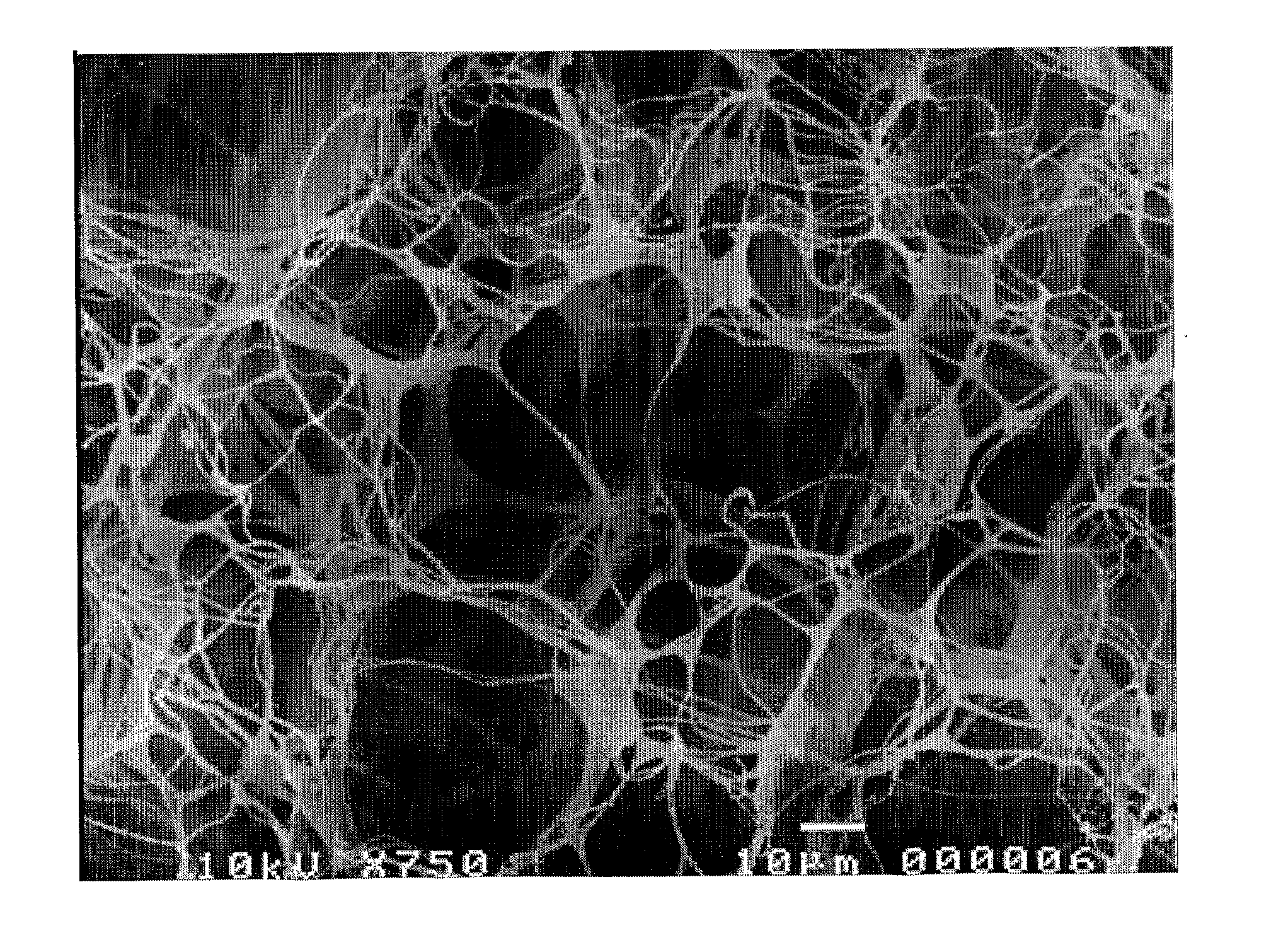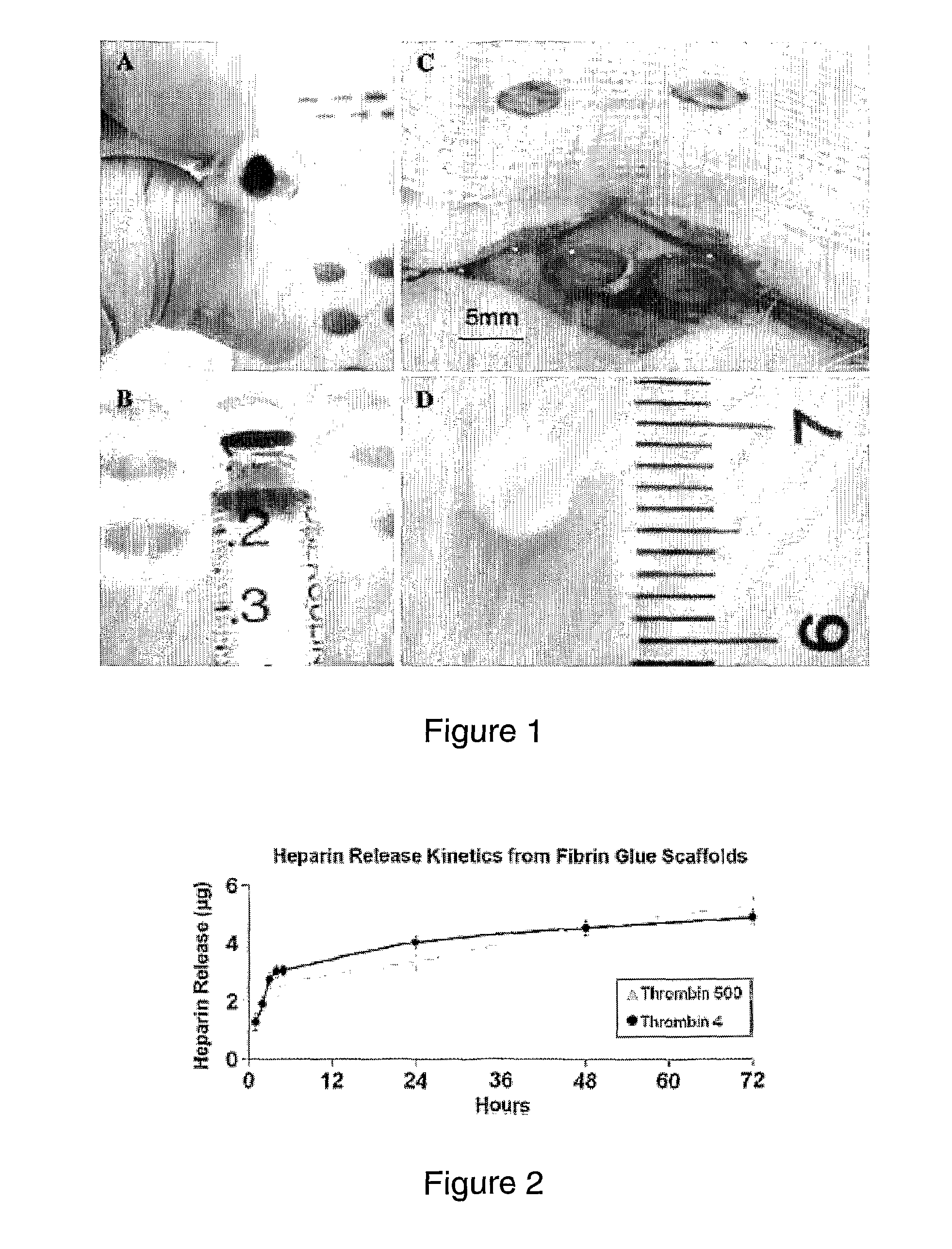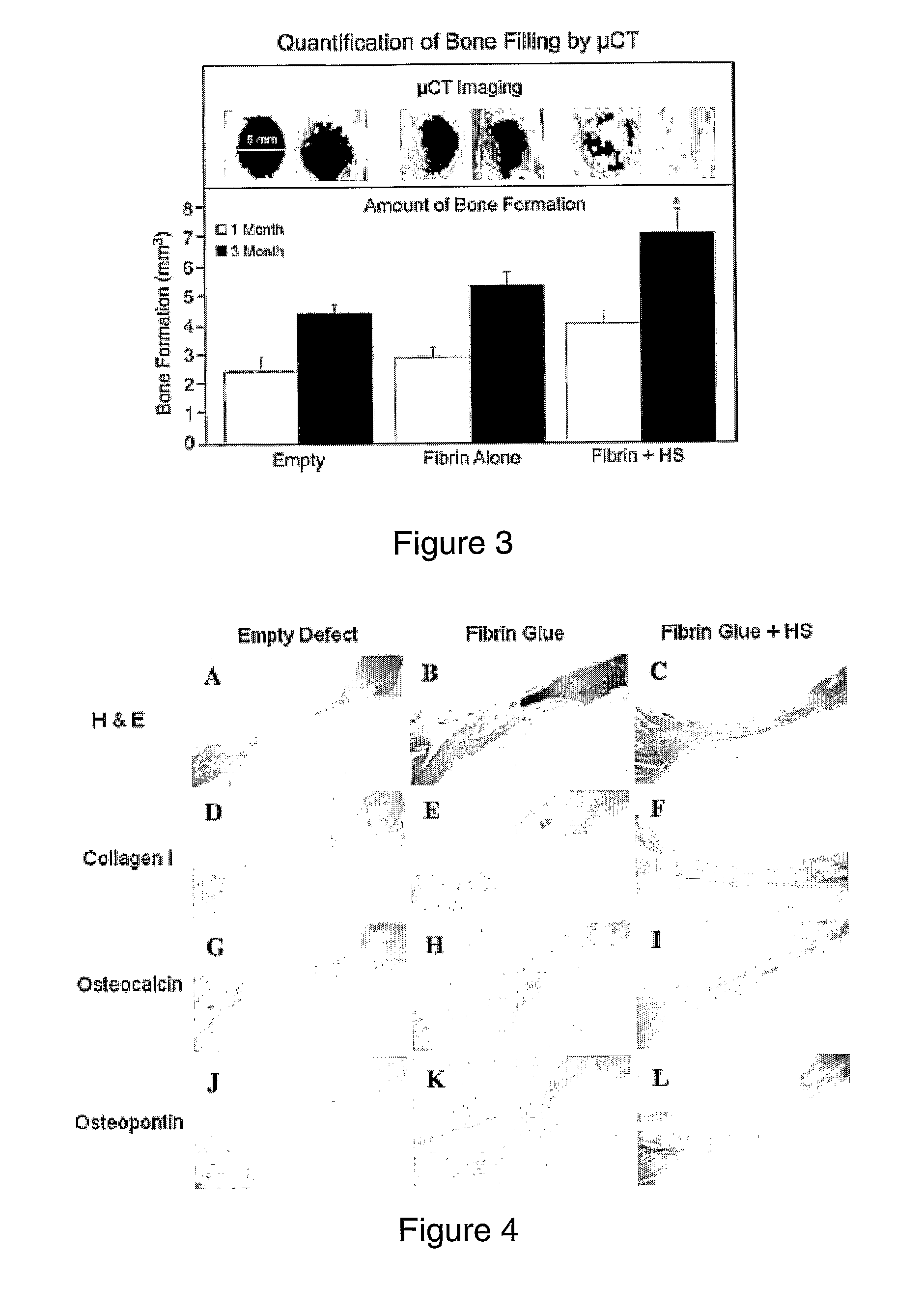Therapeutic Bone Growth and Regeneration
a bone tissue and growth technology, applied in the field of heparansulphate 2, to achieve the effect of prolonging the life of animals and improving the quality of patients' lives
- Summary
- Abstract
- Description
- Claims
- Application Information
AI Technical Summary
Benefits of technology
Problems solved by technology
Method used
Image
Examples
example 1
Scaffold Fabrication
[0098]Fibrin glue scaffolds were prepared using a commercial kit (TISSEEL kit; Baxter AG). The mould for the cylindrical fibrin glue scaffold was a sterile, modified 1 ml syringe (FIGS. 1A& B) that enabled easy application directly into the defect site once the scaffold had polymerized, so enhancing sterility by eliminating the need to handle any of the scaffolds (FIG. 1C). Fibrinogen (25 μl) was added to 25 μl of thrombin solution, producing a polymerized scaffold of approximately 5 mm diameter and a thickness of 2 mm (FIG. 1D). Two different concentrations of thrombin (Thrombin 4 and Thrombin 500) were investigated in vitro to optimize for the onset of in vivo experiments. The fibrin glue scaffolds created were used as a carrier-matrix for the heparan sulfate delivery as well as to fill up the bone defect site. To incorporate HS-2 into the scaffold, 5 μg HS-2 was added to the thrombin component. This was thoroughly mixed and then pipetted into the sterile modif...
example 2
Materials and Methods
[0118]Collagen sponges were purchased from Integra Life Sciences (HELISTAT®, Integra Life Sciences Corp, USA) and measured 7×21×5 mm. For all assays, sponges were cut evenly into six pieces measuring 7×7×5 mm and kept sterile. The morphology of the sponges was evaluated using Scanning Electron Microscopy (SEM). Briefly, collagen sponges were sputtered-coated with gold and then examined using SEM (Jeol JSM 5310 LV) at an accelerating voltage of 10 kV.
Fluorescent Labeling of Heparin
[0119]For non-biological in vitro assays, heparin, a hypersulfated member of the HS glycosaminoglycan family, was conjugated with Alexa Fluor 488 (A488, Molecular Probes, UK) using a method published previously by our group (39). Briefly, 3 mg of heparin (H-3149) was solubilized in 300 μl of 0.1 M solution of 4-morpholinoethanesulfonic acid (MES, M3671) buffer (pH 4.5) and combined with 50 μl of a 10% 1-ethyl-3-(3-dimethylaminopropryl)carbodiimide hydrochloride (EDC, Fl...
PUM
| Property | Measurement | Unit |
|---|---|---|
| pH | aaaaa | aaaaa |
| pH | aaaaa | aaaaa |
| molecular weight | aaaaa | aaaaa |
Abstract
Description
Claims
Application Information
 Login to View More
Login to View More - R&D
- Intellectual Property
- Life Sciences
- Materials
- Tech Scout
- Unparalleled Data Quality
- Higher Quality Content
- 60% Fewer Hallucinations
Browse by: Latest US Patents, China's latest patents, Technical Efficacy Thesaurus, Application Domain, Technology Topic, Popular Technical Reports.
© 2025 PatSnap. All rights reserved.Legal|Privacy policy|Modern Slavery Act Transparency Statement|Sitemap|About US| Contact US: help@patsnap.com



